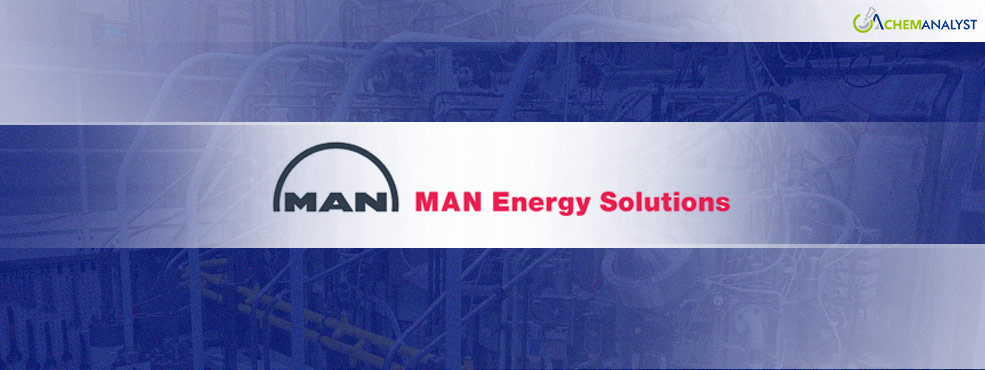Welcome To ChemAnalyst

MAN Energy Solutions has announced the launch of its "AmmoniaMot 2" research project, a pivotal initiative aimed at exploring the potential of ammonia as a sustainable marine fuel. Building on the success of the world’s first two-stroke ammonia engine, this new project focuses on developing a four-stroke, medium-speed, dual-fuel test engine powered by ammonia. The project, which commenced in August 2024, is set to last for 3½ years and is supported by the German Federal Ministry for Economic Affairs and Climate Action (BMWK).
The AmmoniaMot 2 project will include ten projects in the eastern Athabasca Basin, integrating IsoEnergy's Geiger, Thorburn Lake, Full Moon, Edge, Collins Bay Extension, North Thorburn, 2Z Lake, and Madison projects, along with Purepoint’s Turnor Lake and Red Willow projects. This joint venture emphasizes the collective expertise of both companies in developing innovative solutions for the uranium market.
As part of this initiative, IsoEnergy will invest C$1 million in Purepoint through a concurrent equity financing, enhancing its exposure to Purepoint’s exploration efforts in the region. Notably, Purepoint's Hook Lake project has reported significant drilling results, including a remarkable 10-meter intercept of uranium at a grade of 10.3% U3O8, showcasing the high potential of the area.
The new four-stroke engine project follows the initial AmmoniaMot project, which concluded in May 2024 after conducting critical research on ammonia combustion in internal combustion engines. The promising findings from that project have paved the way for the more ambitious AmmoniaMot 2 initiative. The partnership includes previous collaborators such as WTZ Roßlau, Woodward L’Orange, and the Universities of Munich and Rostock, alongside new contributors like Neptun Ship Design, GenSys, and MNR.
Alexander Knafl, head of engineering R&D for four-stroke engines at MAN Energy Solutions, stated, “This project is the next logical step after AmmoniaMot, aligning seamlessly with our strategy to advance sustainable technologies. Decarbonizing the maritime industry begins with the fuels we use, and ammonia stands out as a carbon-free option that can significantly reduce CO2 emissions.”
MAN Energy Solutions envisions the application of four-stroke ammonia engines primarily in new builds for non-passenger vessels, including cargo and specialty ships, as well as auxiliary generators for larger ammonia-powered two-stroke vessels. For passenger vessels, such as ferries and cruise liners, the company is prioritizing methanol as the preferred fuel and is developing corresponding engine technologies concurrently.
Christian Kunkel, head of combustion development for four-stroke R&D at MAN, emphasized the solid foundation laid during the original AmmoniaMot project. He highlighted that ammonia demonstrates potential for reducing greenhouse gas emissions by 90-95%, thereby meeting existing emission regulations. Kunkel expressed enthusiasm for the next phase of the project, underscoring ammonia's importance as a future carbon-free fuel that could play a crucial role in the maritime sector’s decarbonization.
In terms of project roles, MAN Energy Solutions will oversee the entire engine concept and the exhaust-gas aftertreatment system. WTZ Roßlau will focus on developing the combustion concept and testing injection components, while Woodward L’Orange will design the injector prototype. The University of Munich will handle 3D-CFD combustion simulations, and Neptun Ship Design will work on a demonstrator for a high-pressure fuel-supply module for ammonia, adhering to maritime safety standards. The University of Rostock will conduct various experiments related to injection technology and exhaust-gas treatment, while GenSys and MNR will be responsible for developing the high-pressure fuel-supply module and double-walled fuel systems, respectively.
This collaborative effort underscores MAN Energy Solutions' commitment to advancing sustainable fuel technologies in the maritime industry, highlighting the significance of ammonia as a viable alternative.
We use cookies to deliver the best possible experience on our website. To learn more, visit our Privacy Policy. By continuing to use this site or by closing this box, you consent to our use of cookies. More info.
